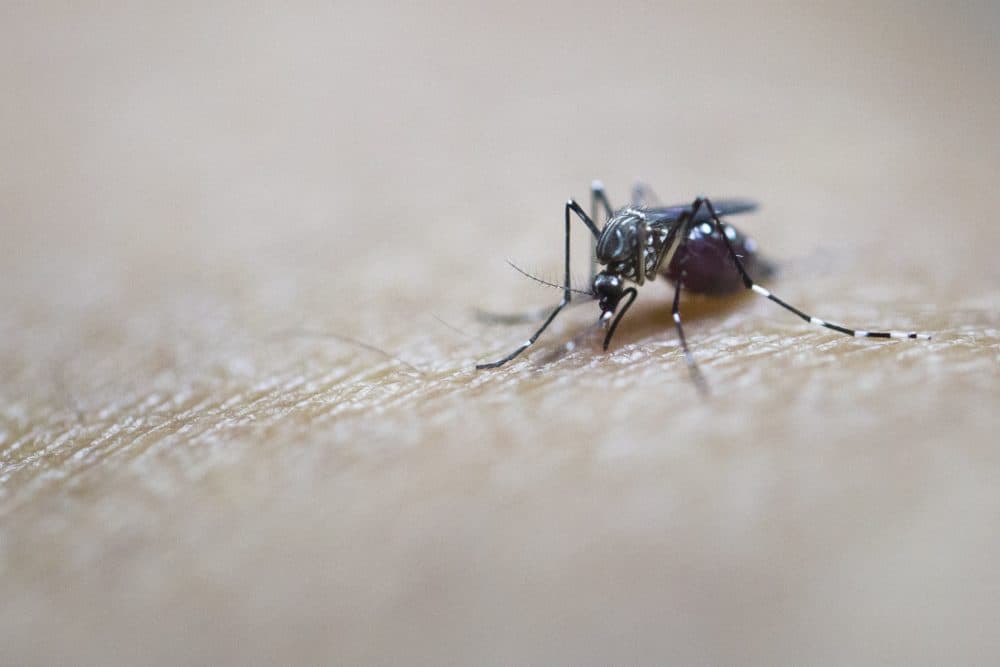Advertisement
How Human Diet Drugs Could Curb Mosquitoes' Blood-Sucking Behavior

What's the deadliest animal in the world?
The mosquito — a tiny, fraction-of-an-ounce pest that's responsible for several million deaths per year, according to the World Health Organization.
But now, scientists say they may have found a way to curb the appetite of these blood-sucking bugs — by using human appetite suppressants. A new Rockefeller University study published in the journal Cell found female mosquitoes — the only ones that bite — can be tricked into feeling full after drinking human diet drugs.
Female mosquitoes bite humans for blood because that blood contains protein used to develop mosquito eggs. But once the female feels full from her meal, "she completely loses interest in biting people" for a few days, lead researcher Laura Duvall tells Here & Now's Robin Young.
Diet drugs for humans are meant to target our hunger receptors. "Mosquitoes also have their own versions of these receptors," Duvall says.
"So we fed these human diet drugs to our mosquitoes to see whether or not it would change their behavior. And of course, the big surprise to us, was that it did in fact change their attraction to humans," she says.
Duvall and other researchers combined the receptor-targeting drugs into a saline solution and fed the mixture Aedes aegypti mosquitoes — a species known for carrying dengue, yellow fever and Zika.
According to Duvall, after the mosquitoes drank the salt water and drug mixture, they acted as if they had eaten a satisfying meal, ultimately curbing their biting behavior.
"That was something that really convinced us [that] we had found a way to fool this mosquito into acting like she'd had this nice, juicy meal," she says.
Although the research is still in its early stages, the findings could have a massive impact on how Aedes aegypti mosquitoes transmit deadly diseases to humans. More than half of the world's population lives in areas where the Aedes aegypti mosquito species is present, according to the World Health Organization.
Advertisement
Duvall says directly targeting a female mosquito's behavior can prevent her from "being a good disease vector."
The next step, Duvall says, is to test on other mosquito species and other blood-feeding organisms that carry similar vector-borne diseases, such as ticks.
"We think that it's likely that the drugs that we've identified will also be active in other mosquito species," she says.
How will mosquitoes be lured to the drugs?
Researchers are looking into a trap that would "mimic a human," meaning the trap would contain carbon dioxide and human odors to attract mosquitoes, Duvall says.
"Animals like butterflies and bees, who don't really care about humans, won't be attracted," she says.
Researchers will also need to test on mosquitoes outside of the laboratory. Because mosquitoes are "quite good at developing resistance to insecticides," Duvall says, tests will need to be done on wild mosquito populations. She adds that the drugs also must be developed as "cheap and long lasting" before they can be deployed in the field.
Karyn Miller-Medzon produced this interview and edited it for broadcast with Todd Mundt. Serena McMahon adapted it for web.
This segment aired on February 18, 2019.

